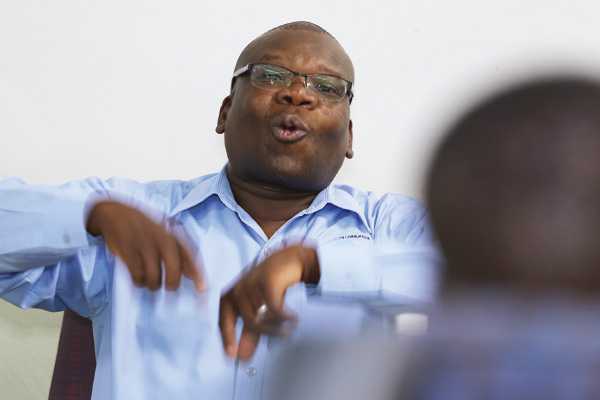DCEC turns heat on BR passenger train scandal
Investigation into the alleged corruption at Botswana Railways (BR) regarding the passenger train coaches is still on going.This was revealed recently by Directorate on Corruption and Economic Crime (DCEC) Director General Bruno Paledi. In 2016 BR was said to have failed to follow laid down procedures when procuring the 37 coaches from South Africa’s Transnet Engineering.
Paledi has revealed that investigations are progressing well in the matter. He said the only challenge they have is that the matter involves parties in other jurisdictions, adding that cross-border investigations take time. This is because law enforcement agencies in the affected countries have to be engaged.
Paledi could however not state at what level the investigation is saying it is difficult to tell because of complexity of corruption cases. The first 22 coaches were received and launched in March 2016 by President Dr Ian Khama in Lobatse. Even though allegations of corruption and malpractice were reported prior and after the launch of the coaches, which reports were dismissed, the train experienced technical problems during its maiden trip.
Investigations by this publication in 2016 suggested that Transnet was also under pressure to deliver the coaches within the agreed time with the client (BR), something that could have compromised the coaches from undergoing all the required tests among them mechanical and electrical testing.
The train was first expected to have commenced operation in December 2015 as promised by then President Ian Khama during a political rally a few months before the 2014 general elections, but this was not to be. Instead, Botswana Guardian then uncovered communications between officials from Transnet Engineering regarding completion and readiness for delivery of the coaches to Botswana.
It has also been alleged that 22 of the 37 coaches worth R280 million which were delivered for the launch were incomplete when they left Pretoria, meaning that all engineering tests- electrical, mechanical and sign off were not done by the quality department before the coaches left the workshops.
BR is said to have also not participated in the 2000KM fault free trip to ascertain the safety and quality of the coaches. The coaches were engineered and manufactured at Transnet’s Koedoespoort (KDS) and Salt River (SLR) Facilities. One of the documents titled Coach 85478 contains outstanding spares that were needed in Mafikeng urgently for completion of the coach. Some of the spares that were needed included among others, water filter pipe cab on the emergency brake side, control box for aircon (1), Orange box for aircon, lights covers (5), cover plates between steps and the head stock (4), 20x10 Amps Relays, roof aircons (2), door striker plates (4) and all Decals for under-frame components (e.g water tank, retention tank and filtration system).
Botswana Guardian is in possession of emails exchanged between officials at Transnet Engineering on how they should speed up things so as to meet the client’s requirements and try to safe guard the company (Transnet Engineering) Original Equipment Manufacturer (OEM)’s integrity. The passenger train scandal resulted in senior officials at BR being suspended pending investigations and the procurement department slapped with corruption charges.





